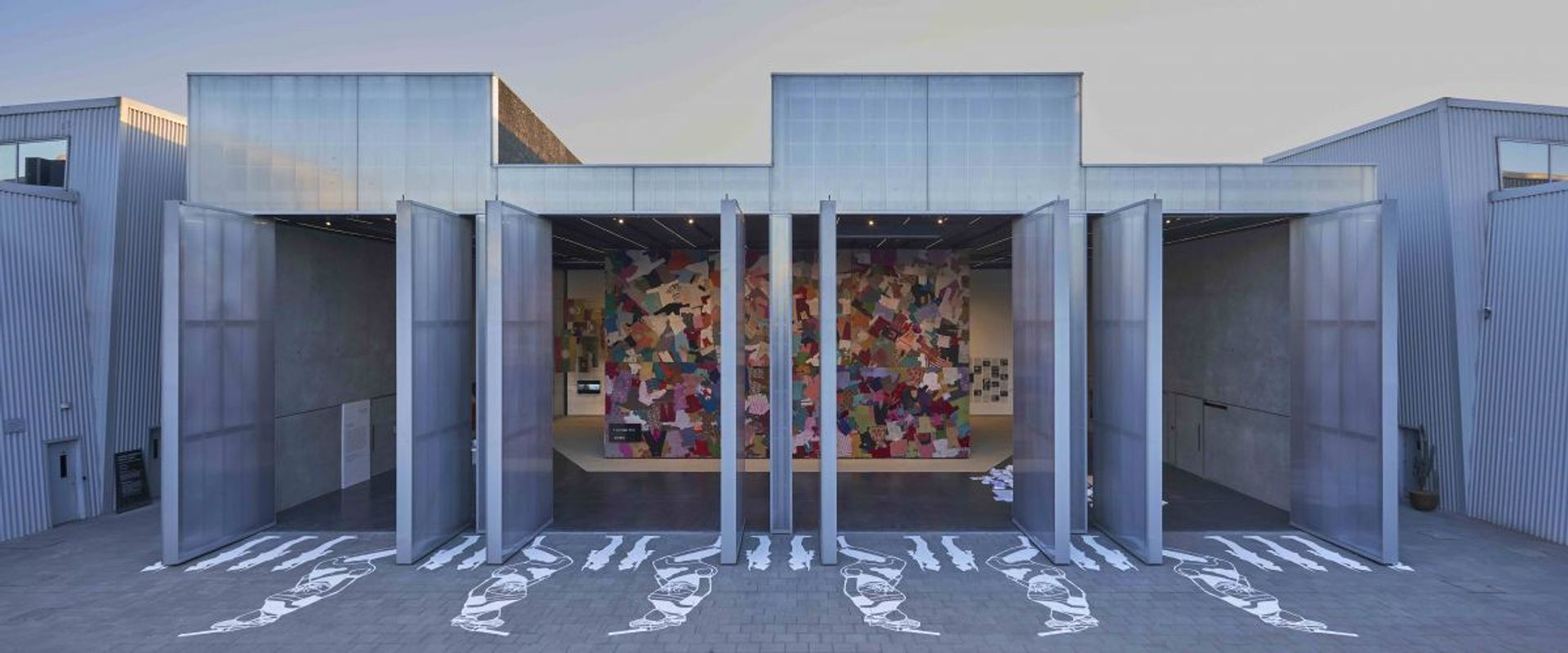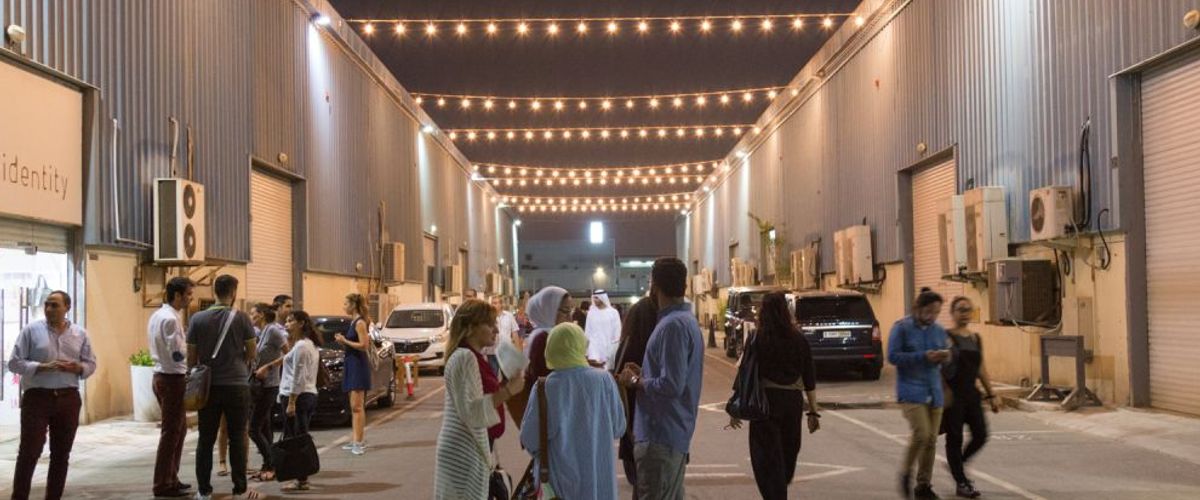The figures alone tell the story: Alserkal Avenue, once a bleak industrial area in Dubai’s Al Quoz district, attracted just 10,000 people in 2007, the year it was set up as a creative arts hub. Last year well over quarter of a million visitors flowed into the district, now doubled in size and boasting a vibrant mix of creative start-ups, non-profit foundations and art galleries.
The 500,000 square foot plot of land formerly housed a marble factory—the source of the owning family’s fortune—and basic, unadorned warehouses. At the beginning a few trailblazers such as Carbon 12, Ayyam, Mojo and Isabelle van den Eynde moved in, alongside the car workshops and other businesses.
Today the Alserkals—the family’s name as well as the name of the project—have added a vast new area as well as Concrete, a Rem Koolhaas-designed multi-disciplinary exhibition space. The project now has a total of 91 various companies, from health food restaurants to art galleries, who now occupy the spaces. It also boasts the region’s only indy cinema, Akil.
At the start of this year’s Dubai Art Week (until 23 March), Abdelmonem Alserkal announced the creation of the Alserkal Arts Foundation, a not-for-profit entity which aims to foster artistic development in Dubai.
In truth, the Alserkals (who wholly own and run the avenue) already engaged in many of the actions the foundation will do—commissioning, offering residencies and educational programmes. But it will bring all these activities under one umbrella and add research grants to the mix.
“This is a natural progress,” Abdelmonem says: “And the latest in a series of milestones, as the art scene in Dubai matures.”

Concrete, a Rem Koolhaas-designed multi-disciplinary exhibition space Courtesy of Alserkal Avenue
Alserkal already has organised some 18 residencies, and Abdelmonem has been supporting arts projects around the region since the beginning, so the formalisation just continues his efforts. It is partnering, for instance, with the Dhaka Art Summit next year, with its creators Nadia and Rajeeb Samdani present for the announcement of the foundation.
“There is no longer any excuse to say that Dubai has no cultural offerings,” says Kourosh Nouri, the co-director of Carbon 12. “Of course, there are commercial galleries like ours, but now also these non-profits really add to the attraction!”
His words are echoed by Sunny Rahbar of The Third Line gallery. “Here in Dubai we don’t have many cultural institutions, and in addition Alserkal is a really cool place for people to go, away from the shopping malls, with its vegan restaurant, the cinema and design shops. Adding the arts foundation is good news for the avenue and for Dubai as a whole.”
Alserkal already had a couple of non-profits—the Jean-Paul Najar Foundation, and the new Ishara Foundation, established by the Indian collector Smita Prabhakar, which opened this month with a show of Shilpa Gupta and Zarina. While neither calls itself a “museum”, they are both privately funded art spaces. A third private “museum”, founded by the Iranian businessman Ramin Salsali, is relocating to Berlin after the final show ends on 31 May. “I felt there was more need for it in Berlin, in view of the racial and religious tensions we are seeing there at the moment,” Salsali tells The Art Newspaper.
“As a family, we are contributing to the community and providing a springboard for artistic initiatives,” Abdelmonem says. And the avenue is also, he underlines, about legacy—family members are also involved in the business. “We will continue with these initiatives—and the outcome will be seen in 25 years,” he says.


